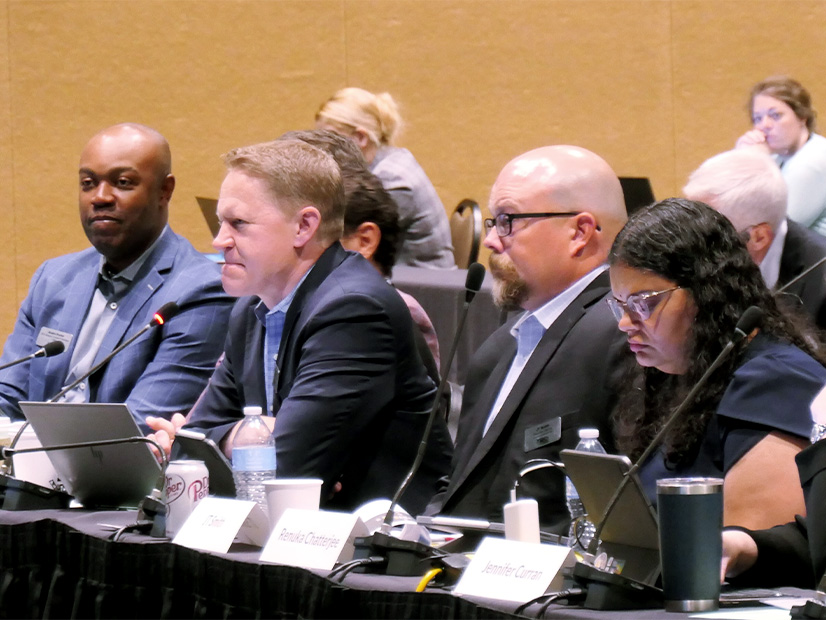
MADISON, Wis. — MISO executives again emphasized that this year’s capacity auction results aren’t indicative of the resource adequacy risks the system is going to confront in coming years or even within a few weeks.
Executive Director of Market Operations J.T. Smith said members’ reaction to last year’s high prices and MISO’s new seasonal design helped MISO achieve capacity sufficiency in the 2023/24 planning year that began June 1. (See 1st MISO Seasonal Auctions Yield Adequate Supply, Low Prices.)
But he issued a warning that the results shouldn’t leave MISO complacent.
Smith said from last year to this year, members cut back on their load forecasts, deferred baseload generation retirements, and some units left PJM for the MISO capacity construct.
“The $10/MWh summer number does not say all is well,” Smith warned the MISO Board of Directors at a June 13 Markets Committee meeting. “We’re not fixed. We still have a lot more to do in making sure this market sends the right price signals.”
Senior Vice President of Markets Todd Ramey said the approximate 5-GW supply improvement over last year in the auction comes down to factors that are not “repeatable or sustainable.”
Smith said MISO has more to do to value capacity in accordance with its reliability contribution and incent new generation. He said adding the seasonal component this year was an important step.
“As an operations person, I’m interested in how the seasonal construct lowered summer pricing. That’s a surprising outcome. I feel much more confident in where we’re moving versus where we’ve been,” he said.
But Smith said over the summer, MISO “may have to lean on non-firm imports all the way to load management” on the chance that the nation experiences a prolonged, widespread heatwave that drives up load. He said if MISO’s previous forecasts for heat concentrated in June and a cooler July and August pan out, “it should be an easy summer as it was an easy spring.” (See MISO: Little Firm Capacity to Spare This Summer.)
MISO Independent Market Monitor David Patton said under more realistic summertime modeling using historic generator availability, he foresees the potential for negative reserve margins this summer; however, he said MISO’s vast import capability means the RTO likely will be resource adequate in a heatwave.
“With the seasonal capacity market, I believe we’re creating stronger incentives for resources not to schedule outages in the summer,” Patton said.
However, he said MISO might be undercounting de-rates in high temperatures because some thermal resources must cut output to avoid discharging warm water into rivers at certain times. He also said MISO’s long-lead resources aren’t realistically available to respond in time when needed.
“These aren’t the greatest scenarios to be under,” he said.
Otherwise, MISO oversaw an operationally straightforward spring, with an average 69-GW load. Smith said real-time prices were down from an average $57/MWh in 2022 to $26/MWh mostly due to a stabilized gas market.
“You can see the energy prices dropped by half because gas prices dropped by two-thirds,” Patton said.
Patton said the nation’s gas storage is 20% higher than usual because the mild winter allowed production to continue while fuel demand dipped. He also said the lower gas prices in spring mean that MISO’s coal resources were back to earning very little profit, “somewhere in the neighborhood of $5/MWh.” Over 2022, coal generation was unusually profitable because natural gas prices shot upward.

